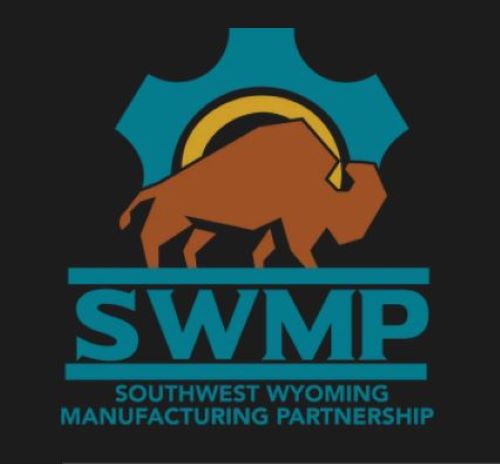How the Trucking Action Plan Can Impact Logistics in Evanston, WY

18 Mar 2022
News
Evanston, WY, is the next frontier on the Wasatch Front, ready for growth and primed for development with location advantages that make the distribution of goods and attainment of raw materials exceedingly convenient. Interstate 80 runs through Evanston, the eighth largest city in Wyoming, to connect it with Salt Lake City, Utah, in about an hour.
While the roads are wide open, supply chain issues are affecting logistics everywhere because there simply aren’t enough people to move the freight. This shortage of workers is particularly felt in the trucking industry since driver shortages were experienced even before the pandemic due to challenges such as high turnover rates, an aging workforce, and long hours away from home. Trucking is particularly vital for industry and consumers since most goods Americans use in their daily lives are transported and delivered by trucks. In fact, 72 percent of goods in America are shipped by truck, and in most communities, trucks are the only form of delivery.
Trucking Action Plan
To improve workforce needs in the industry, the Trucking Action Plan was launched in December 2021. The Trucking Action Plan is part of the Supply Chain Disruptions Task Force that was established in June 2021 to address supply chain bottlenecks created when the economy suddenly sparked to life after the pandemic slowdown.
The following components of the plan will lay the foundation for a next-generation trucking workforce and support numerous good jobs.
Expedite the issuance of CDLs by reducing barriers
The Department of Transportation (DOT) and the Federal Motor Carrier Safety Administration (FMCSA) are working to support state departments of motor vehicles by working hand-in-hand with them to address the challenges they are facing. FMCSA will provide over $32 million in funding to help states expedite commercial driver’s licenses (CDLs). They will also send every state a toolkit detailing specific actions to take to expedite the process like expanding hours and locations as well as moving processes online.
Accelerate the expansion of registered apprenticeships
Registered apprenticeship programs are the gold standard for driver training because they provide paid, on-the-job learning. A 90-day challenge was kicked-off to recruit employers interested in developing new registered apprenticeship programs and to support those interested in expanding existing programs; all in an effort to put more well-trained drivers on the road. Expanding this proven workforce strategy in the trucking industry will ensure high-quality instruction for new drivers and will help employers develop and train a skilled workforce.
There are currently more than 10,000 apprentices in the trucking industry and the Department of Labor (DOL) and its national partners are committed to helping accelerate the development of even more new programs. One such DOL-funded national apprenticeship intermediary partner, FASTPORT, is committed to working with trucking employers, unions, and industry associations to achieve the creation of programs in as little as two days. DOL is investing $8 million in more national apprenticeship intermediaries who can help employers start registered apprenticeships.
DOL’s Office of Apprenticeships (OA) has consultants located across the country who will assist organizations interested in starting a new program or joining an existing program. For those interested in becoming truck driving apprentices, the FASTPORT portal is the place to start.
Conduct veterans-focused outreach and recruitment
Because there are approximately 70,000 veterans who are likely to have certified trucking experience in the last five years, the DOL Veterans’ Employment and Training Service (VETS) and the Department of Veterans Affairs (VA) will step up efforts and partnerships to help transition service members and veterans to good jobs in the trucking industry.
Use of the Off-Base Transition Training Pilot Program (OBTT) will be explored to extend employment readiness curriculum to connect veterans, National Guard and Reserve members, and their spouses to a career path in trucking. DOL and VA will work to ensure veterans’ driving experience is recognized for those seeking a CDL and will build on proven models, such as SkillBridge programs. Partnerships between the Employment Navigator and Partnership Pilot (ENPP) and the trucking industry will be expanded.
Launch “Driving Good Jobs” initiative
“Driving Good Jobs” initiative, launched jointly by DOT and DOL, will focus on ensuring a strong and safe trucking workforce. Key aspects of the initiative include:
- Hosting listening sessions that engage drivers, unions and worker centers, industry, and advocates.
- Lifting up employers and best practices that support job quality and driver retention.
- Implementing research and engagement efforts such as studying the issue of truck driver pay and unpaid waiting time.
- Identifying effective and safe strategies to get new entrants in the field from underrepresented communities including women and young drivers between the ages of 18-20.
- Setting up a task force to investigate predatory truck leasing arrangements.
- Identifying longer-term actions, such as potential administrative or regulatory actions that support drivers and driver retention by improving the quality of trucking jobs.
Evanston is “The Next Frontier.” Contact the Evanston Economic Development office to learn about logistics and distribution opportunities: (307) 783-6300 or roneill@evanstonwy.org.
More Topics

.jpg)


